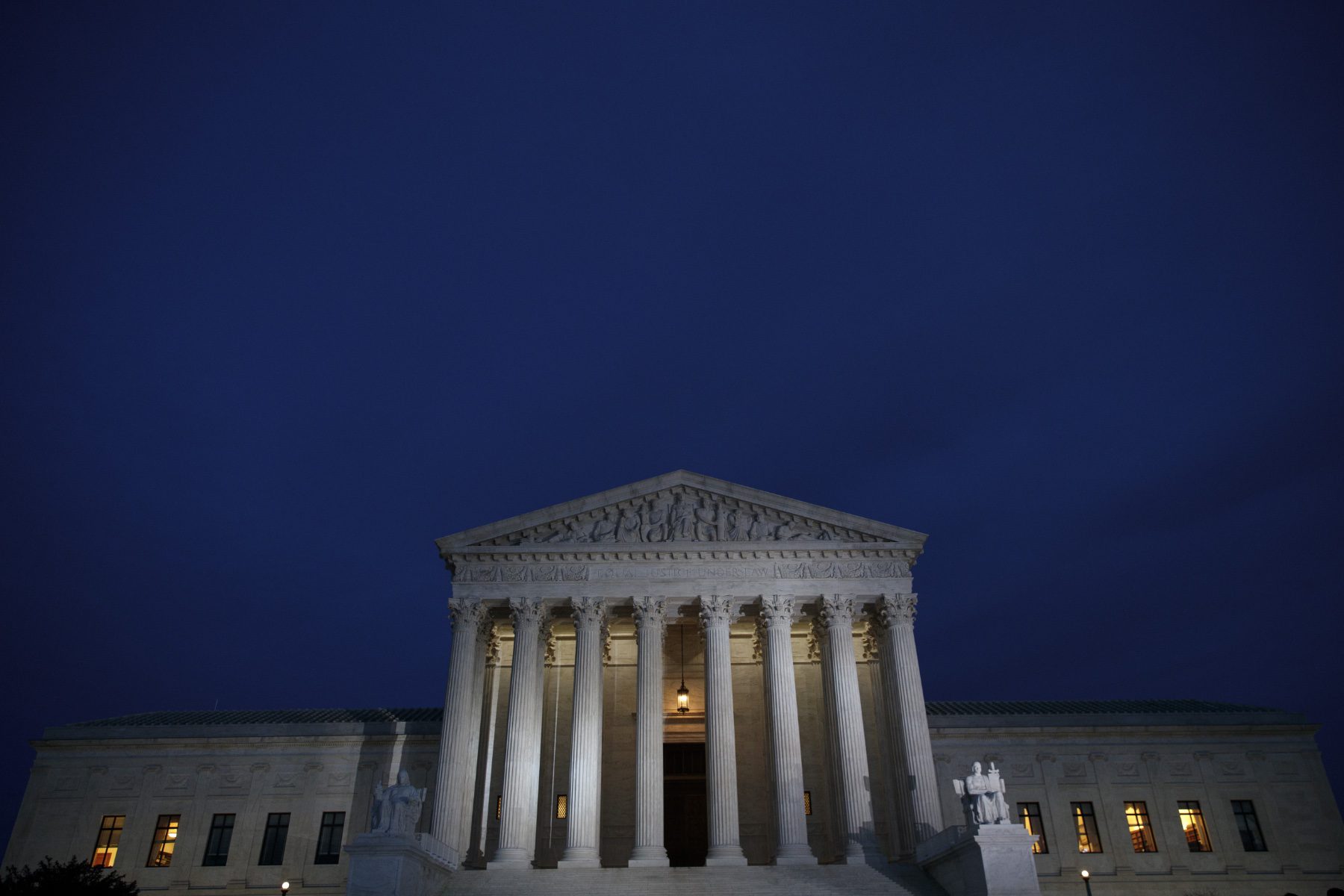The U.S. Supreme Court late Wednesday refused to block Texas’ six-week abortion ban, the nation’s most restrictive law on the procedure that effectively outlaws the procedure in the state, in what Justice Sonia Sotomayor called a “stunning” decision in her dissent.
In the 5-4 opinion, issued almost 24 hours after the law went into effect, Sotomayor and the court’s two other liberal members dissented, joined by Chief Justice John Roberts. All four of the dissenting justices filed opinions. The majority opinion was unsigned.
“Presented with an application to enjoin a flagrantly unconstitutional law engineered to prohibit women from exercising their constitutional rights and evade judicial scrutiny, a majority of Justices have opted to bury their heads in the sand,” Sotomayor wrote.
In addition to banning most abortions, the Texas law empowers private citizens to sue someone who “aids or abets” a person in obtaining an abortion after six weeks within the state. The court’s majority opinion essentially argued that the court could not block the law largely because it is individuals, not officials, who are in charge of enforcement. Texas’ reproductive health clinics have sued numerous state officials, including judges who would be tasked with enforcing the abortion ban, health department and medical board leadership, and the state attorney general.
“It is unclear whether the named defendants in this lawsuit can or will seek to enforce the Texas law against the applicants in a manner that might permit our intervention,” the majority opinion read.
Though the dissenting justices all noted the unusual workaround in the Texas law, Sotomayor and Justice Elena Kagan were particularly unequivocal in their opinions.
“Without full briefing or argument, and after less than 72 hours’ thought, this Court greenlights the operation of Texas’s patently unconstitutional law banning most abortions,” Kagan wrote. “The Court thus rewards Texas’s scheme to insulate its law from judicial review by deputizing private parties to carry out unconstitutional restrictions on the State’s behalf.”
Sotomayor echoed her colleague, writing that the “court has rewarded the state’s efforts to delay federal review of a plainly unconstitutional statute,” continuing: “The court should not be so content to ignore its constitutional obligations to protect not only the rights of women, but also the sanctity of its precedents and of the rule of law.”
Sotomayor called the Texas law “a breathtaking act of defiance—of the Constitution, of this Court’s precedents, and of the rights of women seeking abortions throughout Texas.”
The six-week ban appears to fall outside of the framework established by Roe v. Wade, the 1973 case that guaranteed the right to an abortion up until a fetus can live independently outside the womb. That does not happen until around 23 weeks of pregnancy, usually. In his dissent, Roberts argued that the law should be blocked while lower courts debate its constitutional merits. The law is still being challenged in federal court.
Originally, a lower federal court was supposed to hear arguments about the Texas law this past Monday — two days before the law would take effect. But the court’s supervising appellate court, the Fifth Circuit Court of Appeals, canceled the hearing this past Friday night. On Monday, Texas’ abortion providers made their emergency application to the Supreme Court.
It’s not yet clear when or how the Texas lawsuit will proceed. It is still possible the law will eventually be overturned, and the Supreme Court’s unsigned majority opinion clarified that the decision should not be interpreted as indicating whether or not the justices believe the ban is constitutional.
The White House on Thursday called the court’s ruling “an unprecedented assault on a woman’s constitutional rights,” saying it “unleashes unconstitutional chaos and empowers self-anointed enforcers to have devastating impacts.” In the statement, President Joe Biden cited the dissents by four justices and said he is ordering a “whole-of-government effort” to respond, pointing specifically at the departments of Health and Human Services and Justice and asking federal officials to determine what steps can “ensure that women in Texas have access to safe and legal abortions as protected by Roe, and what legal tools we have to insulate women and providers from the impact of Texas’ bizarre scheme of outsourced enforcement to private parties.”
Already, the law is having an impact.
Texas’ abortion providers have stopped performing the procedure for patients more than six weeks pregnant — and are turning patients away when they come to seek care. Clinics in nearby states are fielding calls from Texans seeking abortions. One clinic in Oklahoma City had already scheduled 40 Texan patients, and was booked out through the end of September.
Abortion funds, which help people pay for the procedure and associated travel costs, are raising money to address the anticipated spike in demand — though many told The 19th they do not expect to be able to help everyone who seeks help.
And the longer the law is in effect, the broader its impact will be. Experts anticipate that many Texas-based clinics — which will provide far fewer services and see fewer patients as a result — will be forced to close their doors. Health care providers are starting to leave.
Even if the law is eventually overturned, it will be too late for much of Texas’ abortion infrastructure.






